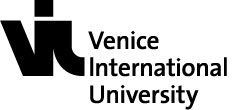Digital Tools and Cultural Heritage
Professors
Schedule
Course description
This course provides an in-depth exploration of the intersection between digital technology and cultural heritage preservation and management. In an era where digital tools are revolutionizing how we document, conserve, and share cultural artifacts and monuments, understanding the implications and opportunities of these technologies is essential for professionals in the field of cultural heritage. The course will delve into various aspects of digitization, data management, virtual reality, and augmented reality applications, and their impact on the preservation and interpretation of cultural heritage. Students will gain practical experience with cutting-edge digital tools and technologies while examining the ethical and theoretical frameworks that guide their use. Through a combination of lectures, hands-on workshops, and case studies, participants will develop a holistic understanding of the digital landscape in cultural heritage and be prepared to tackle the challenges and opportunities it presents.
Learning Outcomes
Upon successful completion of the course, students will be able to:
• Analyze the significance of digitization and digital tools in the context of cultural heritage preservation and management.
• Demonstrate proficiency in using a variety of digital tools and technologies for cultural heritage documentation and conservation.
• Evaluate ethical and legal considerations related to digitization, copyright, and cultural heritage.
• Critically assess case studies and best practices in the field of digital cultural heritage.
• Develop effective strategies for data management, preservation, and long-term access to digital cultural heritage resources.
Teaching and Evaluation Methods
The course will employ a blend of teaching methods, including lectures, hands-on workshops, group discussions, and guest lectures from industry experts.
Evaluation will be based on the following components:
• Class Participation and In-Class Activities: 15%
• Individual Assignments and Projects: 35%
• Midterm Examination: 20%
• Final Examination: 20%
• Group Presentation: 10%
Bibliography
Horst Kremers (2020). Digital Cultural Heritage. Springer
Borowiecki, Forbes and Fresa. (2016). Cultural Heritage in a Changing World. Springer
Last updated: June 6, 2024




















